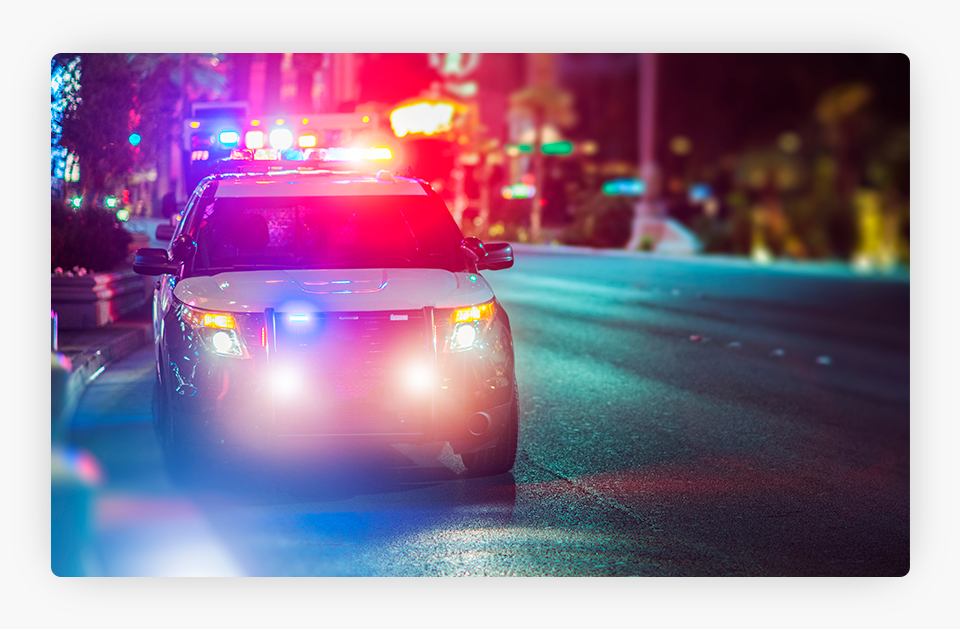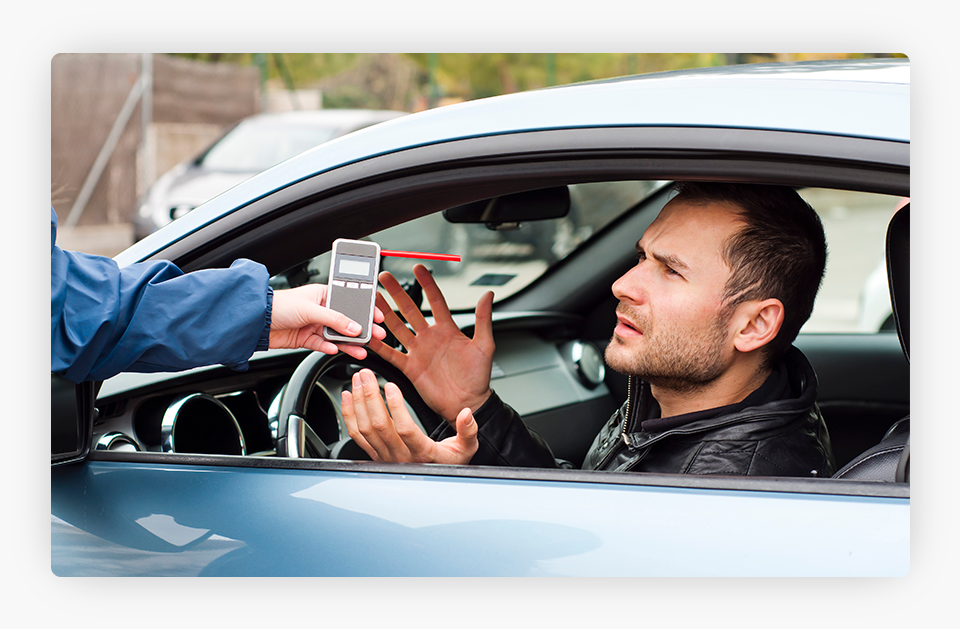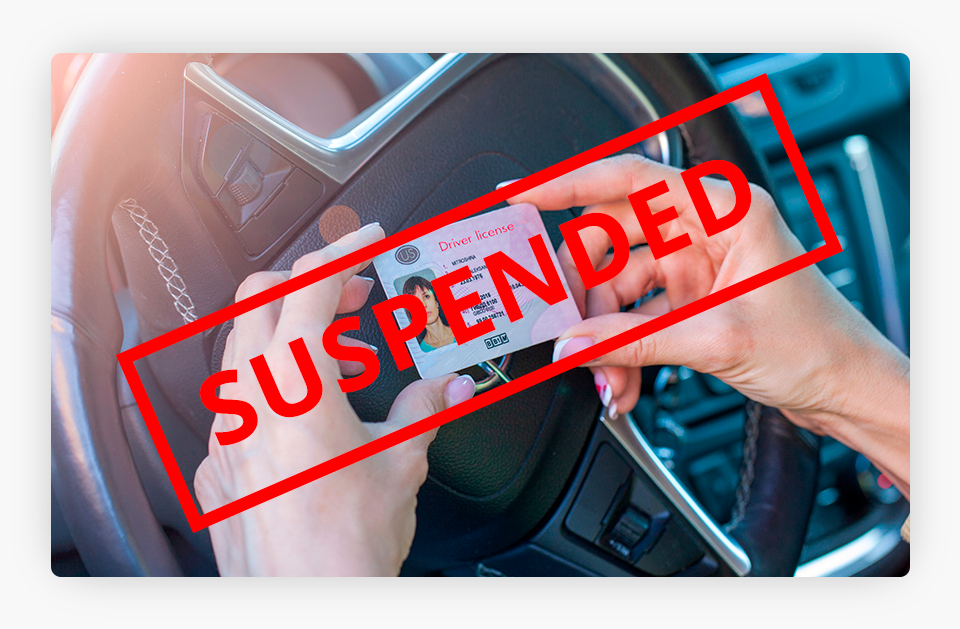We can’t send you updates from Justia Onward without your email.
Unsubscribe at any time.
Drunk driving costs far too many lives each year. People convicted of DUI or DWI may face severe consequences. The DUI & DWI Law Center in the Justia Legal Guides explains the basics of the law in this area.
Despite widespread awareness, drunk or drugged driving continues to cause devastating harm on roads across America. States impose a wide range of penalties for DUI or DWI offenses. Thus, all drivers should know how these laws work. Justia offers a DUI & DWI Law Center, among the dozens of Justia Legal Guides that we have compiled for consumers. Below are some answers that it provides to general questions that drivers may raise.

When Does an Officer Have a Right To Stop Me?
To stop a driver, an officer needs to have a reasonable suspicion that they have violated the law. The reasonable suspicion does not need to involve drunk driving. An officer can pull over a driver for a different type of traffic violation and then arrest the driver for DUI if they seem to be intoxicated during the interaction. If the officer did not have a reasonable suspicion for making the stop, though, the driver probably can get the evidence from the stop excluded from the case. This generally would defeat the DUI charge.
Can I Refuse a Field Sobriety Test?
Field sobriety tests involve asking a driver to perform certain exercises after a stop, such as standing on one leg without losing their balance. A driver generally can refuse a field sobriety test without facing penalties. Field sobriety tests are not always reliable because factors such as medical impairments or nervousness may influence results. They are also subjective, since the officer uses their personal judgment in deciding whether the results indicate intoxication.
Can I Refuse a Chemical Test?
Chemical tests involve determining the blood alcohol content (BAC) of a driver through a breath test, or sometimes a blood or urine test. These methods provide much more objective and reliable results than field sobriety tests. A driver can refuse a chemical test, but they should know about implied consent laws. These provide that a driver automatically consents to chemical testing in certain situations defined by state law, such as a DUI arrest. Violating an implied consent law by refusing a chemical test likely will lead to penalties such as a driver’s license suspension. Moreover, refusal will not necessarily prevent a DUI conviction.

Can I Get a DUI if I Didn’t Blow .08 or Higher?
Yes, you can get a DUI without blowing a BAC above the legal limit. The .08 threshold is a “per se” rule, which means that a driver is automatically considered impaired if their BAC reaches that threshold. This makes it easier for the prosecution to get a conviction, but they can still pursue a charge if other evidence suggests that intoxication affected the driver. Every driver should understand how alcohol affects their body and avoid getting behind the wheel if they are impaired to any degree.
Can I Get a DUI Based on Prescription Medication?
A driver often can get a DUI based on prescription medication if its use impairs their driving. However, some states have established a limited defense to a DUI charge that involves a prescription medication. The elements of the defense vary, but the driver may need to prove that they had a valid prescription and followed the instructions for taking the medication. Someone charged with DUI based on prescription drugs should consult an attorney to find out whether and to what extent their state recognizes this defense.
When Is a DUI Charged as a Felony?
Felony DUI charges are relatively rare. A driver usually will be charged with a misdemeanor instead. However, a history of DUI convictions may raise a charge to the level of a felony. (States often have “lookback periods” that limit the time for which a prior DUI counts as an aggravating factor.) A very high BAC also may elevate a charge to a felony. Further triggering circumstances may include causing an accident that results in injuries, having a child in the car, or driving on a suspended license.

What Is the Difference Between License Suspension and Revocation?
A license suspension temporarily prohibits a driver from getting behind the wheel for a set period. Once that time expires, they generally can start driving again on the same license unless they have committed another offense. By contrast, license revocation involves the loss of the license. A driver would need to apply for a new license, often after a certain time has passed. Getting a new license is not guaranteed.
When Can a Driver Get a Hardship License?
A driver may be able to get a restricted or hardship license for certain limited purposes during a period of suspension or revocation. (They usually will need to go through a waiting period first.) For example, a driver who needs their car to get to work or school may be able to get a hardship license to go to those places. In addition to limits on where a driver can go, a hardship license may involve conditions such as driving during certain times of day or installing an ignition interlock device. Violating a condition may result in the loss of the hardship license.
How Does an Ignition Interlock Device Work?
Installed in the dashboard of a vehicle, an ignition interlock device does not allow the driver to start the car until they blow into the device. This is a common sanction for a DUI conviction, designed to reduce the risk of a repeat offense. The device measures the alcohol in the body of the would-be driver and prevents the car from starting if their BAC exceeds the legal limit. In some cases, an IID collects samples from a driver on a rolling basis. It will order the driver to stop the car if it finds that their BAC is too high.
What Does “Zero Tolerance” Mean for Underage DUI?
The “zero tolerance” regime for drivers under 21 arose from a federal law that conditioned highway funding on prohibiting these drivers from driving with a BAC of .02 or higher. All states have met this condition. Some have gone further and set the threshold for underage drinking and driving at .01, or even any amount of alcohol at all. Jail time is not typically imposed for violations of zero tolerance laws, but a driver may face substantial fines and a license suspension. They also may need to complete an alcohol education or rehabilitation program.
Are Sobriety Checkpoints Constitutional?
Most (but not all) states conduct sobriety checkpoints where police officers screen drivers to see whether they may be driving under the influence. These roadblocks generally do not violate restrictions on searches and seizures under the Fourth Amendment to the U.S. Constitution. However, a sobriety checkpoint must meet certain requirements. Screening selections must be conducted according to a neutral formula, for example, and law enforcement must provide advance notice of the checkpoint. The overall operation must not last for an unreasonable time, and each individual driver must not be detained for longer than necessary.
Final Thoughts
If a driver has been arrested for drinking and driving, or if they have a question about a certain nuance in the law, they should consult a DUI or DWI lawyer in their state. In the meantime, the DUI & DWI Law Center in the Justia Legal Guides provides an overview of common issues that arise in this area. Thus, it furthers Justia’s mission of making the law free and accessible for all.
Related Posts